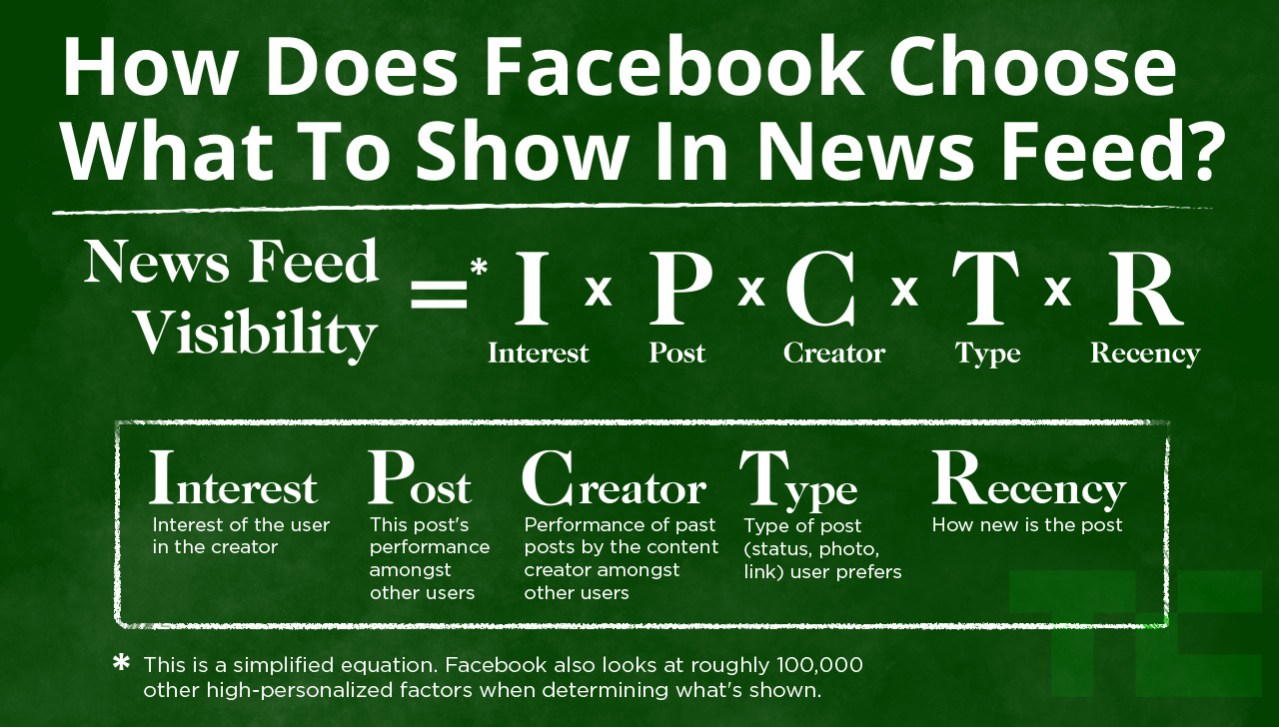Background - what is a "filter bubble"?
In 2011, Eli Pariser gave an influential TED talk on a relatively new phenomenon: the online "filter bubble":Since then, a number of writers on both sides of the Atlantic such as Katherine Viner and Frank Bruno have claimed that society is becoming more polarised and cite the Brexit vote and the rise of Donald Trump as examples.
Here is an attempt to summarise how Facebook selects news for its users by TechCrunch writer, Josh Constine (click to enlarge):
Experiment 1
Divide into groups of 4 or 6.Think of 2 opposing views, e.g. Donald Trump versus Hilary Clinton supporters.
Divide the group against one another. Create 2 sets of social media accounts using the email addresses provided for you by your teacher.
Seed those accounts by visiting websites and liking things that reinforce your chosen ideology.
Let things roll - record what happens to your Facebook news flood, Google searches, etc. Document what happens by taking screen shots and saving them as evidence.
If things are going slowly, you'll need to click on more items!
Compare what you see with the opposing members of your group. Are Pariser et al correct? Is there a filter bubble in operation?
Further instructions to follow, depending on the outcome of the experiment...
Experiment 2
 Watch this about Eliza: https://youtu.be/dZ9DridFLCE?t=1h17m16s
Watch this about Eliza: https://youtu.be/dZ9DridFLCE?t=1h17m16sSee who can have the most interesting conversation with a machine:
http://psych.fullerton.edu/mbirnbaum/psych101/Eliza.htm
Paste interesting conversations in Classroom: https://classroom.google.com/c/MTY1MjMzOTQyM1pa/p/MzAxMDgzMDA1OFpa/details (login required)
Sources
Bruni, F. (2016, May). How Facebook Warps our Worlds. New York Times. Retrieved from: http://www.nytimes.com/2016/05/22/opinion/sunday/how-facebook-warps-our-worlds.htmlConstine, J. (2014, April). Why Is Facebook Page Reach Decreasing? More Competition And Limited Attention. TechCrunch. Retrieved from: https://techcrunch.com/2014/04/03/the-filtered-feed-problem/
Pariser, E. (2011, March). Eli Pariser: Beware online "filter bubbles" [Video file]. Retrieved from: https://www.ted.com/talks/eli_pariser_beware_online_filter_bubbles
Viner, K. (2016, July). How technology disrupted the truth. Guardian. Retrieved from: https://www.theguardian.com/media/2016/jul/12/how-technology-disrupted-the-truth


